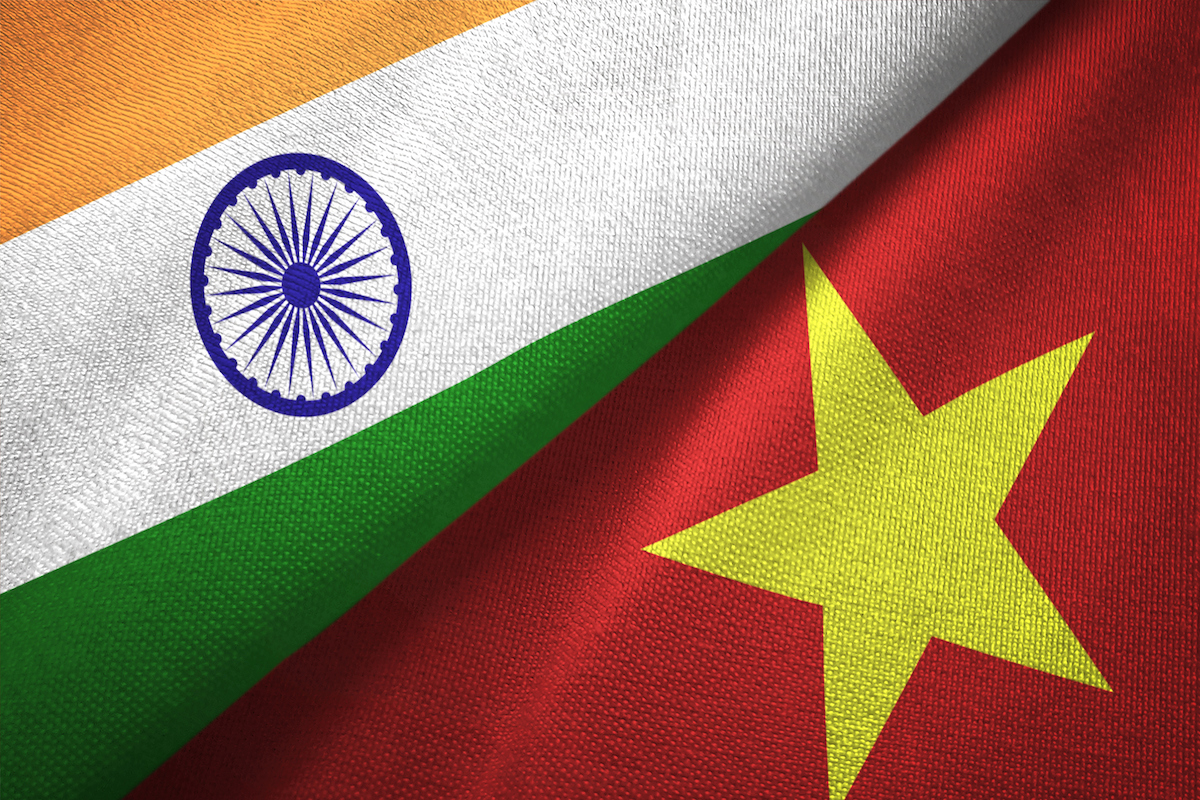Delhi braces for heat wave with temperatures to soaring to 42°C
The national capital is in for a scorching week with the India Meteorological Department (IMD) predicting a heat wave that will push the temperatures to 42 degrees Celsius by April 10.
When Prime Minister Narendra Modi and General Secretary of the Communist Party of Vietnam Nguyen Phu Trong spoke on the telephone on Friday to mark the 50th anniversary of the establishment of diplomatic relations between the two countries, it brought into focus the vital role the Southeast Asian nation is poised to play in the Indo-Pacific region.
SNS | New Delhi | April 20, 2022 10:41 am

Vietnam and India flags (Photo: iStock)
When Prime Minister Narendra Modi and General Secretary of the Communist Party of Vietnam Nguyen Phu Trong spoke on the telephone on Friday to mark the 50th anniversary of the establishment of diplomatic relations between the two countries, it brought into focus the vital role the Southeast Asian nation is poised to play in the Indo-Pacific region. In fact, two of the four members of the Quad grouping ~ the USA and India ~ have been working assiduously with Vietnam to protect their strategic interests in the South China Sea and to counter China’s interventions in the contested waters. To this end, New Delhi has upped the pace of cooperation in various sectors under the aegis of India- Vietnam Comprehensive Strategic Partnership inked during Mr Modi’s visit to Hanoi in 2016. Washington, meanwhile, sent Vice-President Kamala Harris to Vietnam in the second half of 2021 to articulate America’s vision of a free and open Indo-Pacific.
Mr Modi reiterated Vietnam’s importance as a pillar of India’s Act East Policy which underpins a rules-based Indo-Pacific in his telephonic conversation, during which the leaders also agreed to enhance defence ties between the two countries. He sought the General Secretary’s support to enhance the scope of the bilateral relationship including greater facilitation of market access for Indian pharmaceutical and agricultural products.
Advertisement
The Prime Minister highlighted the historical and civilisational links between the nations and, in a nod to the outreach by the state-owned Oil and Natural Gas Corporation (ONGC) in Vietnam, expressed his happiness at India’s involvement in the restoration of Cham (traditional house) monuments in that country. ONGC, through its subsidiary ONGC Videsh, has been active in Vietnam since 1988 and has been contributing to community development projects there as part of New Delhi’s soft power focus. It also recently sought the seventh extension to explore a Vietnamese oil block in the South China Sea where Hanoi is keen to keep aggressive Chinese moves at bay.
Advertisement
Ms Harris, who was the first US Vice-President to visit Vietnam since diplomatic relations were established between the one-time adversaries in 1995, highlighted the free vaccines and freezers provided by America to help Vietnam combat the Covid-19 pandemic and advocated for a reduction of tariffs on the import of American agricultural goods by Vietnam. She underlined that Washington and Hanoi had agreed to work together to strengthen their security relationship to “push back threats” to freedom of navigation and international rules-based order in the region. None of this is lost on China, of course. Beijing has in the past tried using its clout with the Association of Southeast Asian Nations to put pressure on Vietnam, but that hasn’t exactly gone according to plan. What next, is the question.
Advertisement
The national capital is in for a scorching week with the India Meteorological Department (IMD) predicting a heat wave that will push the temperatures to 42 degrees Celsius by April 10.
India is set to begin an ambitious, inter-ministerial scientific study aimed at detecting zoonotic diseases that could spill over from birds to humans, focusing on the critical intersection of human, bird, and forest health.
India's foreign exchange reserves witnessed a spike to USD 665.396 billion during the week ended March 28, the RBI said on Friday. The forex reserve increased for the fourth consecutive week, marking the highest level in nearly five months.
Advertisement
